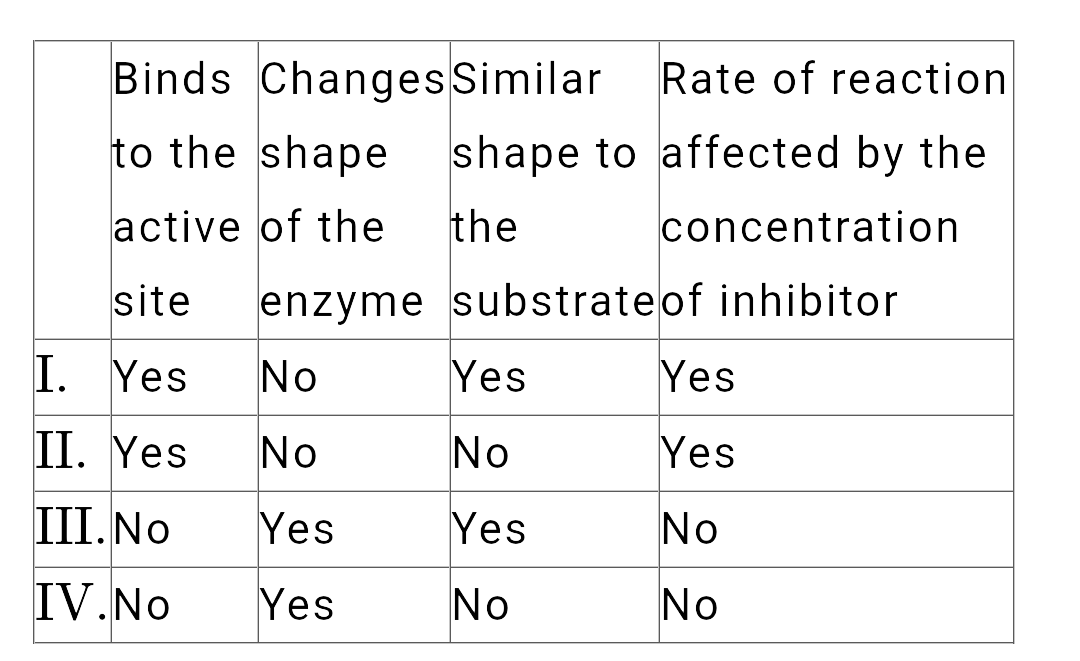How does an enzyme catalyze a reaction ?
A
By increasing activation energy of the reaction
B
By decreasing activation energy of the reaction
C
By supplying heat energy
D
First increases and then decreases activation energy
Video Solution
Text Solution
The correct Answer is:B
|
Answer
Step by step video, text & image solution for How does an enzyme catalyze a reaction ? by Biology experts to help you in doubts & scoring excellent marks in Class 12 exams.
Updated on:21/07/2023Topper's Solved these Questions
Similar Questions
Knowledge Check
How do enzymes catalyse the reaction ?
ABy holding the substrate molecule for chemical reactionBBy providing functional groups which will attack the substrate to carry out chemical reactionCBoth (1) & (2)DNeither (1) & (2)Many factors affect the rate of an enzyme-catalyzed reaction. Which of the following factors does not affect the rate of an enzyme catalyzed reaction ?
ASubstrate concentrationBEnzyme concentrationCSize of enzymeDTemperatureThe efficiently of an enzyme in catalyzing a reaction is due to its capacity
ATo form a strong enzyme-substrate complex.BTo decrease the bond energy of all substrate molecules.CTo change the shape of the substrate molecule.DTo lower the activation energy of the reaction.
First step of an enzyme - catalyzed reaction is
View SolutionLyases catalyze through
View SolutionIn a chemical reaction, enzymes catalyze the reaction by
View SolutionThe enzyme-catalyzed reaction is faster than a metal catalyzed reaction because in enzyme catalysed reaction
View SolutionAt what PH range the rate of enzyme catalyzed reaction is maximum ?
View Solution
